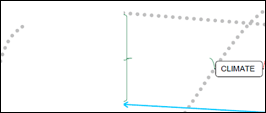
Energy management is a neglected field in business and in public policy because in most countries, its oligopolistic organisation favours political processes. Thomas Hughes´ masterpiece study Networks of Power displayed the full idiosyncrasy of companies such as RWE in Germany. Few utility companies engage in climate policy making, partially following their Habitus although their business risk increases. Finance companies rarely specialise on energy, none on energy efficiency. ESCOs are struggling and no success factors have become evident. The carbon markets' (EU-ETS, California, China etc.) companies discover continuously new products and services previously suppressed or rather unnoticed. The following products from various countries are typical interventions to overcome energy efficiency barriers.
First, the identification of profitable opportunities to combine large thermal loads in industry with power generation (Combined Heat and Power, or cogeneration). As in the USA after the second oil shock with the PURPA law, governments create regulation to cajole business to tap this potential. Mexico has drawn the right lessons in the early 1990s and continues to refine them. Many large gas turbines running without heat recovery still remain. Unfortunately, the cogeneration consulting company, Hagler Bailly Inc. was taken over and tellingly only their office in Pakistan continues to strive as an independent company. Here, we demonstrated a metric to rank cogeneration opportunities in a transparent manner so as to inform negotiation and learning between adjacent companies.
Cogeneration (or Combined Heat and Power, in German Kraftwärmekopplung) in the Mexican economy
Hagler Bailly cooperated with three Mexican consulting companies and the internal dynamics enabled and limited technology transfer. This project is analysed and its dynamics theorised in Technical Knowledge and Development. I produced half of the engineering results and my role was certainly fueled by my ethnographic recording of the project because Hagler Bailly staff and Mexican counterparts put me in a position to mediate. The thermodynamic complexity of combining thermal and electrical load curves, part load characteristics of gas engines, gas and steam turbines leave engineers ample scope for misunderstandings and errors.
The definition of the engineers' success and failures continues to inform research on development management (book was re-edited in 2012), at EADI 2011 conference
EADI Development management
My comments on CDM methodologies AM14, AM48, AM58 reflect my work for Hagler Bailly Inc:
Call for Public Inputs 8 Aug 2015 AM58
Call for Public Input 8 aug 2015 consolidation to ACM
Call for Public Inputs 16 May 2014
Call for Public Input 12 February 2014
Oil exporting countries have particular problems with well-enshrined inefficiencies. An effective way to harness other motivations is to seek links between efficiency and pollution. Most of these concepts are applicable for the city of Cairo.
In the same multi-year TA programme, I proposed to separate the activities for public and private companies in Egypt and defined what type of intermediary organisations is effective in each sector. It is always possible to define the sector specificity only with technical conditions or with operational parameters. Here the two are thoroughly intertwined, taking inspiration from Moore´s insights into a strong habitus in Egypt.
Auditing programmes have been an effective tool in many countries. Often the cost sharing between the provider and the operating company can be carefully designed and negotiated. International organisations are as poor a tool as are Multi-national companies and both suffer from similar managerial problems. My experience suggests that foreign consultants should be used intermittantly at the discretion of a suitable engineering knowledge accumulator with strong links to the major companies in a country. This case of a diary plant in Morocco is perhaps typical. The results were built into an energy model in spreadsheet format but as often the case in energy, the results gradually loose usefullness when the implicit part of the model is not addressed (what many practitioners argue for).
Colait, Kenitra Morocco, results from a diary energy audit (in French)
From heavy industry, I frequently changed to cottage industries. My apprenticeship as mechanic has often helped to identify technical fixes in operations. The following three vidoes show my work in the Malawi Charcoal Project in the 1980s. I was cameraman, producer and writer besides project engineer. Some of the forest management and charcoal technology innovations are currently reproduced as CDM projects.
Charcoal Production Project in Malawi - Part 1
Charcoal Production Project in Malawi - Part 2
Charcoal Production Project in Malawi - Part 3
Rapeseed (to include)
Flue gas treatment (to include)
Biggart N. and Lutzenhiser L. 2007, "Economic Sociology and the Social Problem of Energy Inefficiency", American Behavioral Scientist, 50/8: 1070-87.
Hughes T.P. 1990, Networks of Power: electrification in Western society, 1880-1930, Baltimore: Johns Hopkins UP.
Moore C.H. 1980, Images of development: Egyptian engineers in search of industry, Cambridge Mass.: MIT Press.